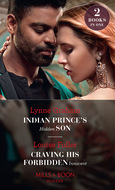Kitap dosya olarak indirilemez ancak uygulamamız üzerinden veya online olarak web sitemizden okunabilir.
Kitabı oku: «The Greek Millionaire's Secret Child»
“Can we just say I’m tired of playing games and leave it at that? I want to be close to you because I like you for yourself. So do you want the same thing or have I misread the signs?”
“No, you haven’t,” she admitted. “But you said just this afternoon that I was a complication you didn’t need.”
“Over-analyzing is second nature to me. It’s saved my skin more often than I care to count. But in this case I took it too far.”
“Maybe not,” she said judiciously. “Maybe you simply realized there was no future in a relationship with me.”
“Never counting on the future is another by-product of my job. The only certainty is the here and now.”
He took a step toward her, then another, until he was close enough to inhale the scent of her skin. “What do you say, Emily?” he asked hoarsely. “Will you take a chance with me?”
Catherine Spencer, once an English teacher, fell into writing through eavesdropping on a conversation about Harlequin® Romances. Within two months she changed careers, and sold her first book to Mills & Boon® in 1984. She moved to Canada from England thirty years ago and lives in Vancouver. She is married to a Canadian and has four grown children—two daughters and two sons (and now eight grandchildren)—plus two dogs. In her spare time she plays the piano, collects antiques, and grows tropical shrubs.
You can visit Catherine Spencer’s website at www.catherinespencer.com
Recent titles by the same author:
SICILIAN BILLIONAIRE, BOUGHT BRIDE
THE GIANNAKIS BRIDE
THE ITALIAN BILLIONAIRE’S CHRISTMAS MIRACLE
THE GREEK MILLIONAIRE’S SECRET CHILD
BY
CATHERINE SPENCER

MILLS & BOON
Before you start reading, why not sign up?
Thank you for downloading this Mills & Boon book. If you want to hear about exclusive discounts, special offers and competitions, sign up to our email newsletter today!
Or simply visit
Mills & Boon emails are completely free to receive and you can unsubscribe at any time via the link in any email we send you.
CHAPTER ONE
EMILY singled him out immediately, not because his father had described him so well that she couldn’t miss him, but because even though he stood well back from everyone else, he dominated the throng waiting to meet passengers newly arrived at Athens’s Venizelos Airport. At more than six feet of lean, toned masculinity blessed with the face of a fallen angel, he could hardly help it. One look at him was enough to tell her he was the kind of man other men envied, and women fought over.
As if on cue, his gaze locked with hers. Locked and lingered a small eternity, long enough for her insides to roll over in fascinated trepidation. Every instinct of self-preservation told her he was bad news; that she’d live to rue the day she met him. Then he nodded, as though he knew exactly the effect he’d had on her, and cutting a swath through the crowd, strode forward.
Given her first unobstructed view, she noted how his jeans emphasized his narrow hips and long legs, the way his black leather bomber jacket rode smoothly over his powerful shoulders, and the startling contrast of his throat rising strong and tanned against the open collar of his white shirt. As he drew closer, she saw, too, that his mouth and his jaw, the latter firm and faintly dusted with new beard shadow, betrayed the stubbornness his father had spoken of.
When he reached them, he asked in a voice as sinfully seductive as the rest of him, “So you beat the odds and made it back in one piece. How was the flight?”
“Long,” Pavlos replied, sounding every bit as worn and weary as he surely must feel. Not even painkillers and the luxury of first-class air travel had been enough to cushion his discomfort. “Very long. But as you can see, I have my guardian angel at my side.” He reached over his shoulder, groped for her hand and squeezed it affectionately. “Emily, my dear, I am pleased to introduce my son, Nikolaos. And this, Niko, is my nurse, Emily Tyler. What I would have done without her, I cannot imagine.”
Again, Nikolaos Leonidas’s gaze lingered, touring the length of her in insolent appraisal. Behind his chiseled good looks lurked a certain arrogance. He was not a man to be crossed, she thought. “Yiasu, Emily Tyler,” he said.
Even though her sweater and slacks pretty much covered all of her, she felt naked under that sweeping regard. His eyes were the problem, she thought dizzily. Not brown like his father’s, as she’d expected, but a deep green reminiscent of fine jade, they added an arresting final touch to a face already possessed of more than its rightful share of dark beauty.
Swallowing, she managed an answering, “Yiasu.”
“You speak a little Greek?”
“A very little,” she said. “I just exhausted my entire vocabulary.”
“That’s what I thought.”
The comment might have stung if he hadn’t tempered it with a smile that assaulted her with such charm, it was all she could do not to buckle at the knees. For heaven’s sake, what was the matter with her? She was twenty-seven, and if not exactly the most sexually experienced woman in the world, hardly in the first flush of innocent youth, either. She knew well enough that appearances counted for little. It was the person inside that mattered, and from everything she’d been told, Niko Leonidas fell sadly short in that respect.
His manner as he turned his attention again to Pavlos did nothing to persuade her otherwise. He made no effort to embrace his father, to reassure him with a touch to the shoulder or hand that the old man could count on his son for whatever support he might need during his convalescence. Instead he commandeered a porter to take care of the loaded luggage cart one of the flight attendants had brought, and with a terse, “Well, since we seem to have exhausted the formalities, let’s get out of here,” marched toward the exit, leaving Emily to follow with Pavlos.
Only when they arrived at the waiting Mercedes did he betray a hint of compassion. “Don’t,” he ordered, when she went to help her patient out of the wheelchair and with surprising tenderness, scooped his father into his arms, laid him carefully on the car’s roomy back seat and draped a blanket over his legs. “You didn’t have to do that,” Pavlos snapped, trying unsuccessfully to mask a grimace of pain.
Noticing, Niko said, “Apparently I did. Or would you have preferred I stand idly by and watch you fall on your face?”
“I would prefer to be standing on my own two feet without needing assistance of any kind.”
“Then you should have taken better care of yourself when you were away—or else had the good sense to stay home in the first place, instead of deciding you had to see Alaska before you die.”
Emily was tempted to kick the man, hard, but made do with a glare. “Accidents happen, Mr. Leonidas.”
“Especially to globe-trotting eighty-six-year-old men.”
“It was hardly his fault that the cruise ship ran aground, nor was he the only passenger on board who was injured. All things considered, and given his age, your father’s done amazingly well. In time, and with adequate follow-up physical therapy, he should make a reasonably good recovery.”
“And if he doesn’t?”
“Then I guess you’re going to have to step up to the plate and start acting like a proper son.”
He favored her with a slow blink made all the more disturbing by the sweep of his lashes, which were indecently long and silky. “Nurse and family counselor all rolled into one,” he drawled. “How lucky is that?”
“Well, you did ask.”
“And you told me.” He tipped the porter, left him to return the airport’s borrowed wheelchair, then slammed closed the car trunk and opened the front passenger door with a flourish. “Climb in. We can continue this conversation later.”
As she might have expected, he drove with flair and expertise. Within half an hour of leaving the airport, they were cruising the leafy green streets of Vouliagmeni, the exclusive Athens suburb overlooking the Saronic Gulf on the east coast of the Attic Peninsula, which Pavlos had described to her so vividly. Soon after, at the end of a quiet road running parallel to the beach, Niko steered the car through a pair of ornate wrought-iron gates, which opened at the touch of a remote control button on the dash.
Emily had gathered Pavlos was a man of considerable wealth, but was hardly prepared for the rather frightening opulence confronting her as the Mercedes wound its way up a long curving driveway, and she caught her first sight of…what? His house? Villa? Mansion?
Set in spacious, exquisitely landscaped grounds and screened from local traffic by a stand of pines, the place defied such mundane description. Stucco walls, blindingly white, rose in elegant proportions to a tiled roof as blue as she’d always imagined the skies to be in Athens, even though, this late September afternoon, an approaching storm left them gray and threatening. Long windows opened to wide terraces shaded by pergolas draped in flowering vines. A huge fountain splashed in a central forecourt, peacocks preened and screeched on the lawns, and from somewhere on the seaward side of the property, a dog barked.
She had little time to marvel, though, because barely had the car come to a stop outside a set of double front doors than they opened, and a man in his late fifties or early sixties appeared with a wheelchair light years removed from the spartan model offered by the airport.
The devoted butler, Georgios, she presumed. Pavlos had spoken of him often and with great fondness. Behind him came a younger man, little more than a boy really, who went about unloading the luggage while Niko and the butler lifted Pavlos from the car to the chair. By the time they were done, he was gray in the face and the grooves paralleling his mouth carved more deeply than usual.
Even Niko seemed concerned. “What can you do for him?” he muttered, cornering Emily near the front entrance as Georgios whisked his employer away down a wide, marble-floored hall.
“Give him something to manage the pain, and let him rest,” she said. “The journey was very hard on him.”
“He doesn’t look to me as if he was fit to travel in the first place.”
“He wasn’t. Given his age and the severity of his osteoporosis, he really ought to have remained in the hospital another week, but he insisted on coming home, and when your father makes up his mind, there’s no changing it.”
“Tell me something I don’t already know.” Niko scowled and shucked off his jacket. “Shall I send for his doctor?”
“In the morning, yes. He’ll need more medication than what I was able to bring with us. But I have enough to see him through tonight.” Struggling to preserve a professional front despite the fact that Niko stood close enough for the warmth of his body to reach out and touch hers, she sidled past him and took her travel bag from the pile of luggage accumulating inside the front door. “If you’d show me to his room, I really should attend to him now.”
He stepped away and led her to the back of the villa, to a large, sun-filled apartment on the main floor. Consisting of a sitting room and bedroom, both with French doors that opened onto a low-walled patio, it overlooked the gardens and sea. Still in the wheelchair, stationed next to the window in the sitting room, Pavlos leaned forward, drinking in the view which, even swathed in floating mist as the storm closed in, held him transfixed.
“He had this part of the house converted into his private suite a few years ago when the stairs proved too much for him,” Niko said in a low voice.
Glancing through to the bedroom, Emily asked, “And the hospital bed?”
“I had it brought in yesterday. He’ll probably give me hell for removing the one he’s used to, but this one seemed more practical, at least for now.”
“You did the right thing. He’ll be more comfortable in it, even if he won’t be spending much time there except at night.”
“Why not?”
“The more mobile he is, the better his chances of eventually walking again, although…”
Picking up on the reservation in her voice, Niko pounced on it. “Although what? You said earlier you expect him to make a reasonable recovery. Are you changing your mind now?”
“No, but…” Again, she hesitated, bound by patient confidentiality, yet aware that as his son, Niko had the right to some information, especially if her withholding it might have an adverse effect on Pavlos’s future wellbeing. “How much do you know about your father’s general health?”
“Only what he chooses to tell me, which isn’t very much.”
She should have guessed he’d say that. There’s no need to contact my son, Pavlos had decreed, when the hospital had insisted on listing his next of kin. He minds his business, and I mind mine.
Niko pinned her in that unnerving green stare. “What aren’t you telling me, Emily? Is he dying?”
“Aren’t we all, to one extent or another?”
“Don’t play mind games with me. I asked you a straightforward question. I’d like a straightforward answer.”
“Okay. His age is against him. Although he’d never admit it, he’s very frail. It wouldn’t take much for him to suffer a relapse.”
“I can pretty much figure that out for myself, so what else are you holding back?”
Pavlos spared her having to reply. “What the devil are the pair of you whispering about?” he inquired irascibly.
Casting Niko an apologetic glance, she said, “Your son was just explaining that you might not care for the new bed he ordered. He’s afraid you’ll think he was interfering.”
“He was. I broke my hip, not my brain. I’ll decide what I do and don’t need.”
“Not as long as I’m in charge.”
“Don’t boss me around, girl. I won’t put up with it.”
“Yes, you will,” she said equably. “That’s why you hired me.”
“I can fire you just as easily, and have you on a flight back to Vancouver as early as tomorrow.”
Recognizing the empty threat for what it really was, she hid a smile. Exhaustion and pain had taken their toll, but by morning he’d be in a better frame of mind. “Yes, sir, Mr. Leonidas,” she returned smartly, and swung the wheelchair toward the bedroom. “Until then, let me do my job.”
Niko had seized the first opportunity to vacate the premises, she noticed, and could have slapped herself for the pang of disappointment that sprouted despite her best efforts to quell it. The faithful Georgios, however, remained on the scene, anxious and willing to help wherever he could. Even so, by the time Pavlos had managed a light meal and was settled comfortably for the night, darkness had fallen.
Damaris, the housekeeper, showed Emily upstairs to the suite prepared for her. Decorated in subtle shades of ivory and slate-blue, it reminded her of her bedroom at home, although the furnishings here were far grander than anything she could afford. Marble floors, a Savonnerie rug and fine antiques polished to a soft gleam exemplified wealth, good taste and comfort.
A lady’s writing desk occupied the space between double French doors leading to a balcony. In front of a small blue-tiled fireplace was a fainting couch, its brocade upholstery worn to satin softness, its once-vibrant colors faded by time. A glass-shaded lamp spilled mellow light, and a vase of lilies on a table filled the room with fragrance.
Most inviting of all, though, was the four-poster bed, dressed in finest linens. Almost ten thousand kilometers, and over sixteen hours of travel with its inevitable delays, plus the added stress of her patient’s condition, had made serous inroads on her energy, and she wanted nothing more than to lay her head against those snowy-white pillows, pull the soft coverlet over her body and sleep through to morning.
A quick glance around showed that her luggage had been unpacked, her toiletries arranged in the bathroom and her robe and nightshirt laid out on the bench in front of the vanity. But so, to her dismay, was a change of underwear, and a freshly ironed cotton dress, one of the few she’d brought with her, hung in the dressing room connecting bathroom and bedroom. And if they weren’t indication enough that the early night she craved was not to be, Damaris’s parting remark drove home the point in no uncertain terms.
“I have drawn a bath for you, Despinis Tyler. Dinner will be served in the garden room at nine.”
Clearly daily protocol in the Leonidas residence was as elegantly formal as the villa itself, and the sandwich in her room, which Emily had been about to request, clearly wasn’t on the menu.
The main floor was deserted when she made her way downstairs just a few minutes past nine, but the faint sound of music and a sliver of golden light spilling from an open door halfway down the central hall indicated where she might find the garden room.
What she didn’t expect when she stepped over the threshold was to find that she wouldn’t be dining alone.
A round glass-topped table, tastefully set for two, stood in the middle of the floor. A silver ice bucket and two cut-crystal champagne flutes glinted in the almost ethereal glow of dozens, if not hundreds, of miniature white lights laced among the potted shrubs lining the perimeter of the area.
And the final touch? Niko Leonidas, disgracefully gorgeous in pale gray trousers and matching shirt, which together probably cost more than six months’ mortgage payments on her town house, leaned against an ornately carved credenza.
She was sadly out of her element, and surely looked it. She supposed she should be grateful her dinner companion wasn’t decked out in black tie.
“I wasn’t aware you were joining me for dinner,” she blurted out, the inner turmoil she thought she’d conquered raging all over again at the sight of him.
He plucked an open bottle of champagne from the ice bucket, filled the crystal flutes and handed one to her. “I wasn’t aware I needed an invitation to sit at my father’s table.”
“I’m not suggesting you do. You have every right—”
“How kind of you to say so.”
He’d perfected the art of withering pleasantries, she decided, desperately trying to rein in her swimming senses. The smile accompanying his reply hovered somewhere between derision and scorn, and left her feeling as gauche as she no doubt sounded. “I didn’t mean to be rude, Mr. Leonidas,” she said, her discomfiture increasing in direct proportion to his suave assurance. “I’m surprised, that’s all. I assumed you’d left the house. I understand you have your own place in downtown Athens.”
“I do—and we Greeks, by the way, aren’t big on honorifics. Call me Niko. Everyone else does.”
She didn’t care what everyone else did. Finding herself alone with him left her barely able to string two words together without putting her foot in her mouth. Resort to calling him Niko, and she’d probably manage to stuff the other one in next to it.
“At a loss for words, Emily?” he inquired, evil laughter shimmering in his beautiful green eyes. “Or is it the prospect of sharing a meal with me that has you so perturbed?”
“I’m not perturbed,” she said with as much dignity as she could bring to bear. “Just curious about why you’d choose to be here, instead of in your own home. From all accounts, you and Pavlos don’t usually spend much time together.”
“Nevertheless, I am his son, and the last I heard, my choosing to spend an evening under his roof doesn’t amount to trespassing. Indeed, given the present circumstances, I consider it my duty to make myself more available. Do you have a problem with that?”
Hardly about to admit that she found him a distraction she wasn’t sure she could handle, she said, “Not at all, as long as you don’t interfere with my reasons for being here.”
“And exactly what are those reasons?”
She stared at him. His eyes weren’t glimmering with laughter now; they were as cold and hard as bottle-green glass. “What kind of question is that? You know why I’m here.”
“I know that my father has become extremely dependent on you. I know, too, that he’s a very vulnerable old man who happens also to be very rich.”
She sucked in an outraged breath at the implication in his words. “Are you suggesting I’m after his money?”
“Are you?”
“Certainly not,” she snapped. “But that’s why you’re hanging around here, isn’t it? Not because you’re worried about your father, but to keep an eye on me and make sure I don’t get my hooks into him or his bank account.”
“Not quite. I’m ‘hanging around’ as you so delicately put it, to look out for my father because, in his present condition, he’s in no shape to look out for himself. If you find my concern offensive—”
“I do!”
“Then that’s a pity,” he replied, with a singular lack of remorse. “But try looking at it from my point of view. My father arrives home with a very beautiful woman who happens to be a complete stranger and whom he appears to trust with his life. Not only that, she’s come from half a world away and signed on to see him through what promises to be a long and arduous convalescence, even though there’s no shortage of nurses here in Athens well qualified to undertake the job. So tell me this: if our situation was reversed, wouldn’t you be a little suspicious?”
“No,” she shot back heatedly. “Before I leaped to unwarranted conclusions or cast aspersions on her professional integrity, I’d ask to see the stranger’s references, and if they didn’t satisfy me, I’d contact her previous employers directly to verify that she’s everything she purports to be.”
“Well, no need to foam at the mouth, sweet thing. Your point is well taken and that being the case, I’m prepared to shelve my suspicions and propose we call a truce and enjoy this very fine champagne I filched from my father’s cellar. It’d be a shame to waste it.”
She plunked her glass on the table so abruptly that its contents surged over the rim with an indignation that almost matched her own. “If you think I’m about to share a drink with you, let alone a meal, think again! I’d rather starve.”
She spun on her heel, bent on making as rapid an exit as possible, but had taken no more than two or three steps toward the door before he caught up with her and slammed it closed with the flat of his hand. “I regret that, in looking out for my father’s best interests, I have offended you,” he said smoothly. “Trust me, I take no pleasure in having done so.”
“Really?” She flung him a glare designed to strip paint off a wall. “You could have fooled me. I’m not used to being treated like a petty criminal.”
He shrugged. “If I’ve insulted you, I apologize, but better I err on the side of caution.”
“Meaning what, exactly?”
“That my father’s been targeted before by people interested only in taking advantage of him.”
“He might not be quite so susceptible to outsiders if he felt more secure in his relationship with you.”
“Possibly not, but ours has never been a typical father-son relationship.”
“So I’ve been given to understand, but I suggest the time’s come for you to bury your differences and stop butting heads. He needs to know you care.”
“I wouldn’t be here now, if I didn’t care.”
“Would it kill you to tell him that?”
He gave a snort of subdued laughter. “No, but the shock of hearing me say so might kill him.”
What was it about the two of them, that they held each other at such a distance, she wondered. “Do either of you have the first idea of the pain that comes from waiting until it’s too late to say ‘I love you?’ Because I do. More often than I care to remember, I’ve witnessed the grief and regret that tears families apart because time ran out on them before they said the things that needed to be said.”
He paced to the windows at the other end of the aptly named garden room whose exotic flowering plants set in Chinese jardinieres must give it the feel of high summer even in the depths of winter. “We’re not other people,” he said.
“You’re not immortal, either.” She hesitated, conflicted once again by how much she could say, then decided to plunge in and disclose what she knew, because she wasn’t sure she could live with herself if she didn’t. “Look, Niko, he’ll probably have my head for telling you this, but your father’s not just battling a broken hip. His heart’s not in very good shape, either.”
“I’m not surprised. That’s what comes from years of smoking and hard living, but nothing his doctor said was enough to make him change his ways. He’s a stubborn old goat.”
That much she knew to be true. Pavlos had discharged himself from Vancouver General against medical advice, and insisted on flying back to Greece even crippled as he was, because he refused to put up with the nursing staff’s constant monitoring. They don’t let a man breathe, he’d complained, when Emily tried to talk him into postponing the journey. I’ll be carried out feetfirst if I let them keep me here any longer.
“Well, the apple doesn’t fall far from the tree, Niko. Where this family’s concerned, you’re both pretty pigheaded.”
He swung around and surveyed her across the width of the room; another long, searching gaze so thorough that a quiver shafted through her. He probed too deeply beneath the surface. Saw things she wasn’t ready to acknowledge to herself. “Perhaps before you start leaping to unwarranted conclusions,” he purred, advancing toward her with the lethal grace of a hunter preparing to move in for the kill, “you should hear my side of the story.”
“You’re not my patient, your father is,” she said, backing away and almost hyperventilating at the determined gleam in his eye.
“But isn’t modern medicine all about the holistic approach—curing the spirit in order to heal the body, and such? And isn’t that exactly what you’ve been advocating ever since you walked into this room?”
“I suppose so, yes.”
“How do you expect to do that, if you have only half the equation to work with? More to the point, what do you stand to lose by letting me fill in the blanks?”
My soul, and everything I am, she thought, filled with the terrible foreboding that unless she extricated herself now from the web of attraction threatening to engulf her, destiny in the shape of Nikolaos Leonidas would take control of her life, and never give it back again. Yet to scurry away like a frightened rabbit was as alien to her nature as taking advantage of Pavlos. So she stood her ground, pushed the irrational presentiment out of her thoughts and said with deceptive calm, “Absolutely nothing.”
“Really?” He leaned toward her, dropped his voice another half octave and latched his fingers around her wrist. “Then why are you so afraid?”
She swallowed and ran her tongue over her dry lips. “I’m not,” she said.
Ücretsiz ön izlemeyi tamamladınız.








